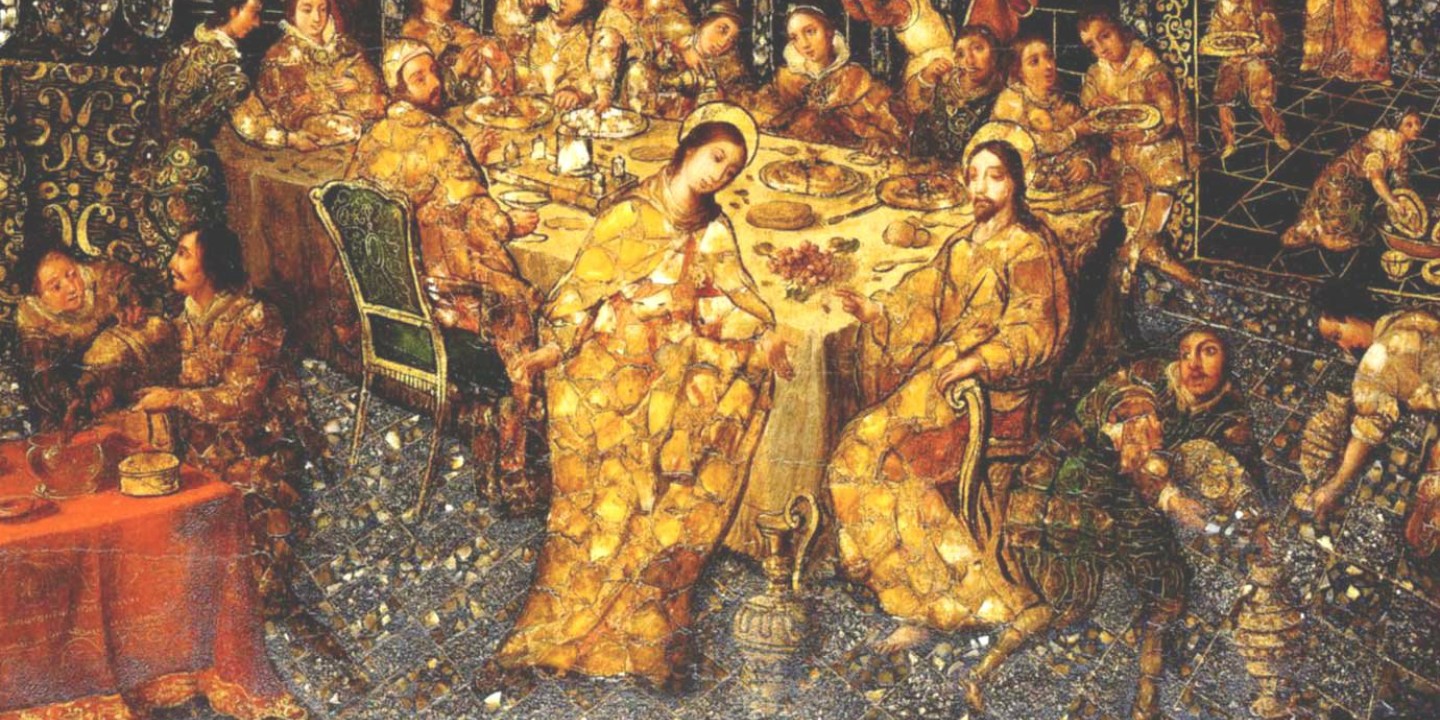January 20, Epiphany 2C (1 Corinthians 12:1-11; John 2:1-11)
Miracles can be hard work.

In my usual worship setting, you would attract some suspicious glances if you raised your arms during a hymn. If you gave a spontaneous prophecy or began speaking in tongues, people would slowly inch away from you and wonder about calling the local mental health facility. We are not exactly a charismatic congregation.
And yet, talk of the Spirit seems more frequent in my church context these days. Perhaps it is because our world feels out of control right now, and we desperately long for a power greater than ourselves to swoop in and make it all right. It comforts me to think that “to each is given the manifestation of the Spirit for the common good.” I imagine divinely inspired speech flowing forth, deep healing washing over the earth, mighty miracles fixing the wrongs that seem unfixable.
Much of the time, I feel overwhelmed by the problems of the world. I think many in the church feel the same way. So even those of us with distinctly uncharismatic leanings welcome all the help we can get. Bring on the Holy Spirit!
Sometimes the problems that keep us up at night, yearning for the Holy Spirit, are large and far reaching: environmental degradation, gun violence, systemic racism, rape culture. And sometimes our desire for a miracle is focused on more mundane realities: getting over a cold, finding a nursery attendant, finishing a sermon.
For Jesus’ mother, the problem is that the wine has run out at the wedding party. She knows that only divine intervention can save the party guests from disappointment and the newly married couple from shame. Fortunately, she also knows someone who can work miracles.
Transforming water into wine is Jesus’ first sign in the Gospel of John. I always thought of it as a lighthearted, simple little miracle—until I considered the servants’ perspective. Jesus tells them to fill the nearby jars with water, “and they filled them up to the brim.” This one short sentence describes so much work.
These servants—at least some of whom are likely women—fill up six stone jars, each of which holds 20–30 gallons. Even empty, the jars would be extremely heavy; filled with about 200 pounds of water each, they would be nearly impossible to move. And without faucets or hoses, this 120–180 gallons of water would most likely have to be drawn from a well.
It turns out that even miracles can be hard work. Not just for the person performing the miracle, but for anyone who happens to be in the general vicinity and get drafted into service. The servants have to fill up the jars. The disciples have to hand out food to more than 5,000 people—and pick up the leftovers. Those who love Lazarus have to push the stone from his tomb’s entrance and remove the grave cloths from his resurrected body. Miracles may be inspired and holy and wonderful, but they are not easy.
I think the same can be said for the gifts of the Spirit. We hope and pray for the Spirit’s power to come down and fix our problems, but we sometimes forget that when the power does come, it comes into us. The Spirit gives us the gifts of wisdom and prophecy and healing and interpretation. We must allow the Spirit to work in us.
My congregation recently completed a major building addition and renovation. Almost everyone involved would say the Holy Spirit was at work in that project. They would also say that a lot of people worked really hard to make it happen. People were using their spiritual gifts, to be sure, but that doesn’t mean it was easy. It was, however, joyful.
Church folks tend to make this passage from 1 Corinthians about us. We talk about which of the spiritual gifts we might have and how we might use them. These aren’t bad conversations to have, but we should keep in mind that this passage is really about God. Paul insists that it is the Spirit of God, not the spirits of gods, that empowers the people of the church. He reminds us that it is God who activates the gifts and God whom we serve with them. When our focus is on God rather than ourselves, we find joy in the process of working with God—even when the work is hard, even when the outcomes are not what we want.
We also find joy in the abundance God provides: there are varieties of gifts, services, and activities. Everyone “is given the manifestation of the Spirit” for the good of everyone The Spirit’s gifts are abundant; they overflow within the church.
Jesus’ first sign in John also flows with abundance. We are told that the six jars present at the party hold water for the Jewish rite of purification. Those jars would have held enough water to purify 200,000 people—certainly more than could be expected to show up for a wedding party in Cana. There is an abundance.
Yet the servants fill the jars “up to the brim.” These jars that hold far more than is possibly needed are nevertheless filled completely. And when the miracle occurs, it is not a miracle to make ends meet, to help the couple manage. It is a miracle of abundance. Gallons and gallons of good wine, wine that impresses the steward. Wine that reveals the glory of God.





